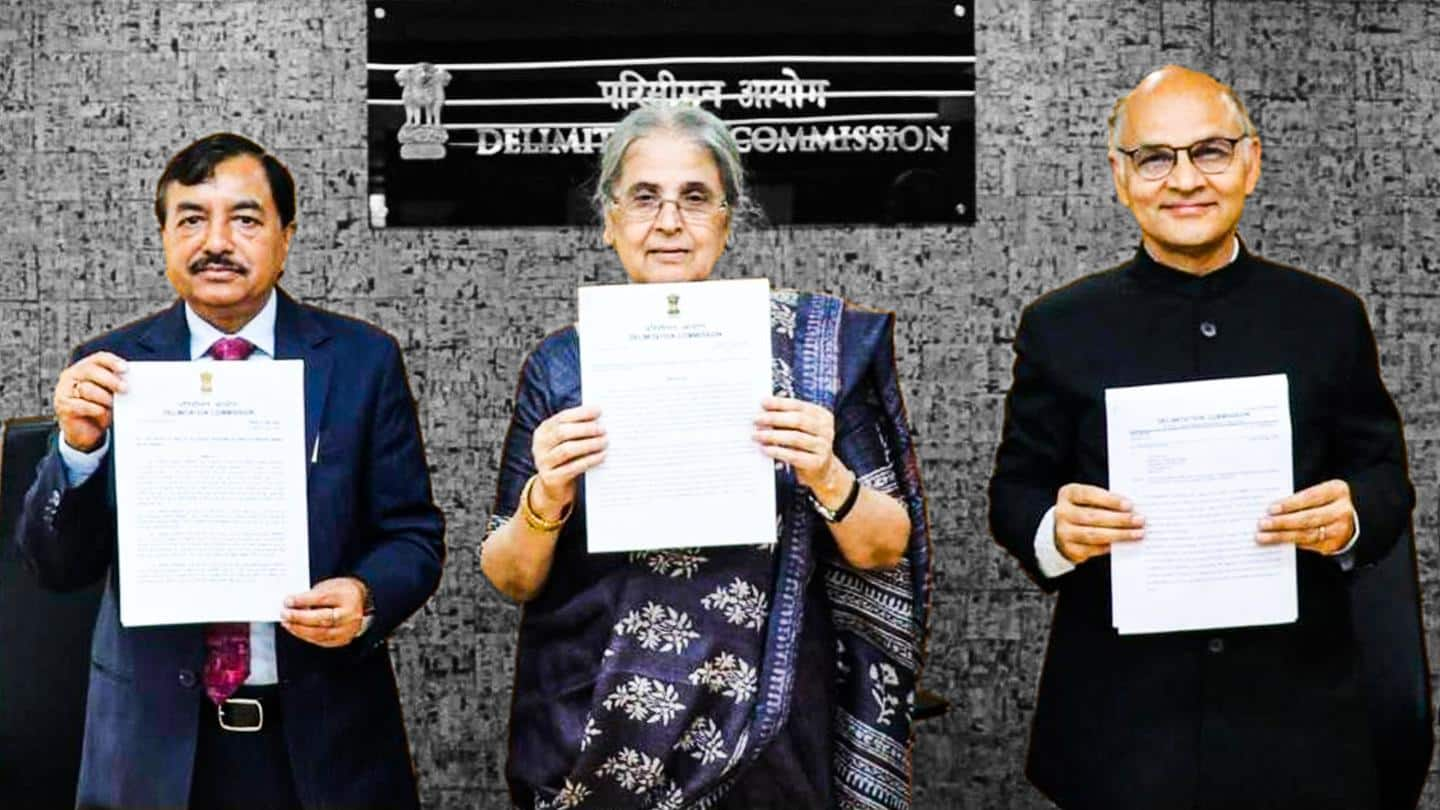
J&K Delimitation Commission submits report, recommends representation for Kashmiri Pandits
What's the story
The Jammu and Kashmir Delimitation Commission on Thursday submitted its final report to the Election Commission of India.
Nine Assembly Constituencies (ACs) have been reserved for the Scheduled Tribes for the first time.
The commission also recommended that Kashmiri migrants and displaced persons from Pakistan Occupied Jammu Kashmir (PoJK) be nominated for representation in the Jammu and Kashmir Assembly.
Context
Why does this story matter?
The completion of the delimitation process would mean Assembly elections are near.
J&K has had no elected government since June 2018 and the last census-based exercise was done in 1995.
To recall, in 2001, the J&K Assembly postponed the delimitation process until 2026.
However, following the revocation of its special status in 2019, a Delimitation Commission was constituted to redraw the constituencies.
Report
What does the report say?
The delimitation order recommends 43 Assembly seats for the Jammu division and 47 seats for the Kashmir region.
The Jammu region's six new Assembly seats are likely to be formed from Rajouri, Doda, Udhampur, Kishtwar, Kathua, and Samba.
Kashmir's new seat would be created out of the Kupwara district.
Currently, the Kashmir region has 46 seats, while the Jammu division has 37 seats.
Details
Each parliamentary seat will have 18 Assembly Constituencies
According to the report, Jammu and Kashmir region has been viewed as a single entity, which is why a Parliamentary Constituency incorporating the Anantnag region in the Valley and Rajouri and Poonch of the Jammu region has been formed.
Each Parliamentary Constituency will now have an equal number of Assembly Constituencies, that is 18, as a result of this reform.
Reservation
'Seats for ST, SC decided as per 2011 Census'
The Delimitation Commission has reserved nine ACs for Scheduled Tribes (STs) for the first time and seven for Scheduled Castes (SCs).
The report says the number of seats to be reserved for SCs and STs in the Legislative Assembly of the Union Territory of Jammu and Kashmir was worked out on the basis of the 2011 Census.
Information
Some tehsils were also relocated
Following the input from citizens and political party members, the Commission modified the names of a few Assembly Constituencies (ACs), IANS reported.
Several representations were made about the relocation of Tehsils and minor adjustments in the territorial jurisdiction of planned ACs, it said.
The requests were reviewed, and a few of the more plausible ones were adopted into the final Order.
Panel
Who all are in the panel?
Justice Ranjana Prakash Desai (a retired Judge of the Supreme Court of India) is heading the Commission.
Ex-Officio members of the Delimitation Commission are Chief Election Commissioner Sushil Chandra and Election Commissioner of Union Territory of Jammu and Kashmir K.K. Sharma.
The panel comprises five associate members also, all of whom are Lok Sabha members, including three from NC and two from the BJP.
Opposition
Opposition had earlier slammed the draft recommendation
Previously, the proposal to raise seats in Jammu sparked a political uproar, with local parties portraying it as an attempt to skew the power balance in favor of Jammu.
Two former Chief Ministers of J&K Omar Abdullah and Mehbooba Mufti had said that the allocation of seats is unreasonable as per the 2011 Census and it's promoting the BJP's political objectives.